Editor's note: Carol Costello anchors the 9 to 11 a.m. ET edition of CNN's "Newsroom" each weekday.
(CNN) -- There is no debate.
Climate change is real. And, yes, we are, in part, to blame.
There is a 97% consensus among scientific experts that humans are causing global warming. Ninety-seven percent!
Yet some very vocal Americans continue to debate what is surely fact.
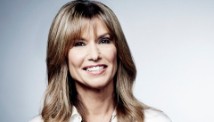 Carol Costello
Carol Costello The question is, why?
Trust certainly plays a part.
According to Gordon Gauchat, an associate professor of sociology from the University of Wisconsin, just 42% of adults in the U.S. have a great deal of confidence (PDF) in the scientific community.
It's easy to understand why. Most Americans can't even name a living scientist. I suspect the closest many Americans get to a living, breathing scientist is the fictional Dr. Sheldon Cooper from CBS's sitcom "The Big Bang Theory." Sheldon is brilliant, condescending and narcissistic. Whose trust would he inspire?
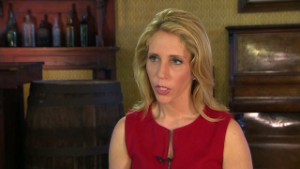 Cruz: Data doesn't back global warming
Cruz: Data doesn't back global warming 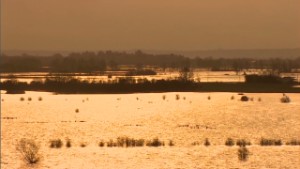 Expert: Sea levels make flooding worse
Expert: Sea levels make flooding worse 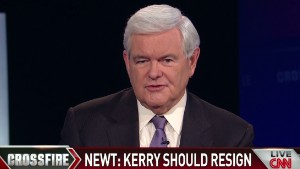 Gingrich: Secretary Kerry is delusional
Gingrich: Secretary Kerry is delusional 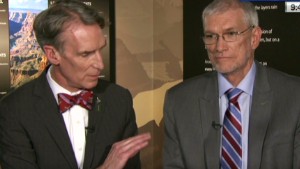 Nye to Ham: God's not in climate change
Nye to Ham: God's not in climate change But trust isn't the only factor in why many Americans doubt climate change.
I asked Anthony Leiserowitz, the director of the Yale Project on Climate Change Communication. His group has been studying the "why" question for more than a decade.
"We've found there are six very (specific) categories that respond to this issue in different ways," he said.
He calls these categories "Global Warming's Six Americas."
Opinion: Obama's efforts on climate may not be enough
The first group, "The Alarmed," is made up 16% of the public. They believe climate change is an urgent problem but have no clear idea of how to fix it.
The second group (27%) is "The Concerned." They believe climate change is a problem but think it's more about polar bears and tiny islands than a problem that directly affects them.
The third group, "The Cautious" (23%), are people on the fence. They haven't made up their minds whether global warming is real or if it's a man-made problem.
The fourth group, "The Disengaged" (5%), doesn't know anything about climate change.
The fifth group, "The Doubtful" (12%), do not think climate change is man-made. They think it's natural and poses no long-term risk.
Leiserowitz says it's the sixth group, "The Dismissives," that is the most problematic, even though it comprises just 15% of the public.
"They say it's a hoax, scientists are making up data, it's a U.N. conspiracy (or) Al Gore and his friends want to get rich." Leiserowitz goes on to say, "It's a really loud 15%. ... (It's a) pretty well-organized 15%."
And thanks to the media and the political stage, that vocal minority is mighty.
Former presidential candidate Rick Santorum told Glenn Beck on Fox News in 2011, "There is no such thing as global warming." Santorum went on to tell Rush Limbaugh, "It's just an excuse for more government control of your life, and I've never been for any scheme or even accepted the junk science behind the whole narrative."
And just last week, tea party favorite Sen. Ted Cruz told CNN's Dana Bash, "Climate change, as they have defined it, can never be disproved, because whether it gets hotter or whether it gets colder, whatever happens, they'll say, well, it's changing, so it proves our theory."
Meanwhile, the climate change "counter movement" has been helped along by an infusion of cash from, among others, some in the powerful fossil fuel industry.
A recent study by Drexel University found that conservative foundations and others have bankrolled climate denial to the tune of $558 million between 2003 and 2010.
"Money amplifies certain voices above others and, in effect, gives them a megaphone in the public square. Powerful funders are supporting the campaign to deny scientific findings about global warming and raise public doubts about the roots and remedies of this massive global threat," writes environmental scientist Robert J. Brulle, the study's author.
The good news is, those uninformed minority voices are being quieted by nature and by those who have powerful voices.
Extreme weather is forcing people to at least think about how global warming affects them directly. And, perhaps more important, many religious leaders, including evangelicals, are now "green." They concur with the scientific community and take it a step farther. They say we have a moral obligation to save the planet.
Even the enormously popular Pope Francis may soon speak out on global warming. The Vatican press office says Francis is working on draft text on ecology. That text could turn into an encyclical, or a letter to bishops around the world, instructing that the "faithful must respect the environment."
Follow us on Twitter @CNNOpinion.
Join us on Facebook/CNNOpinion.
{ 0 comments... read them below or add one }
Post a Comment